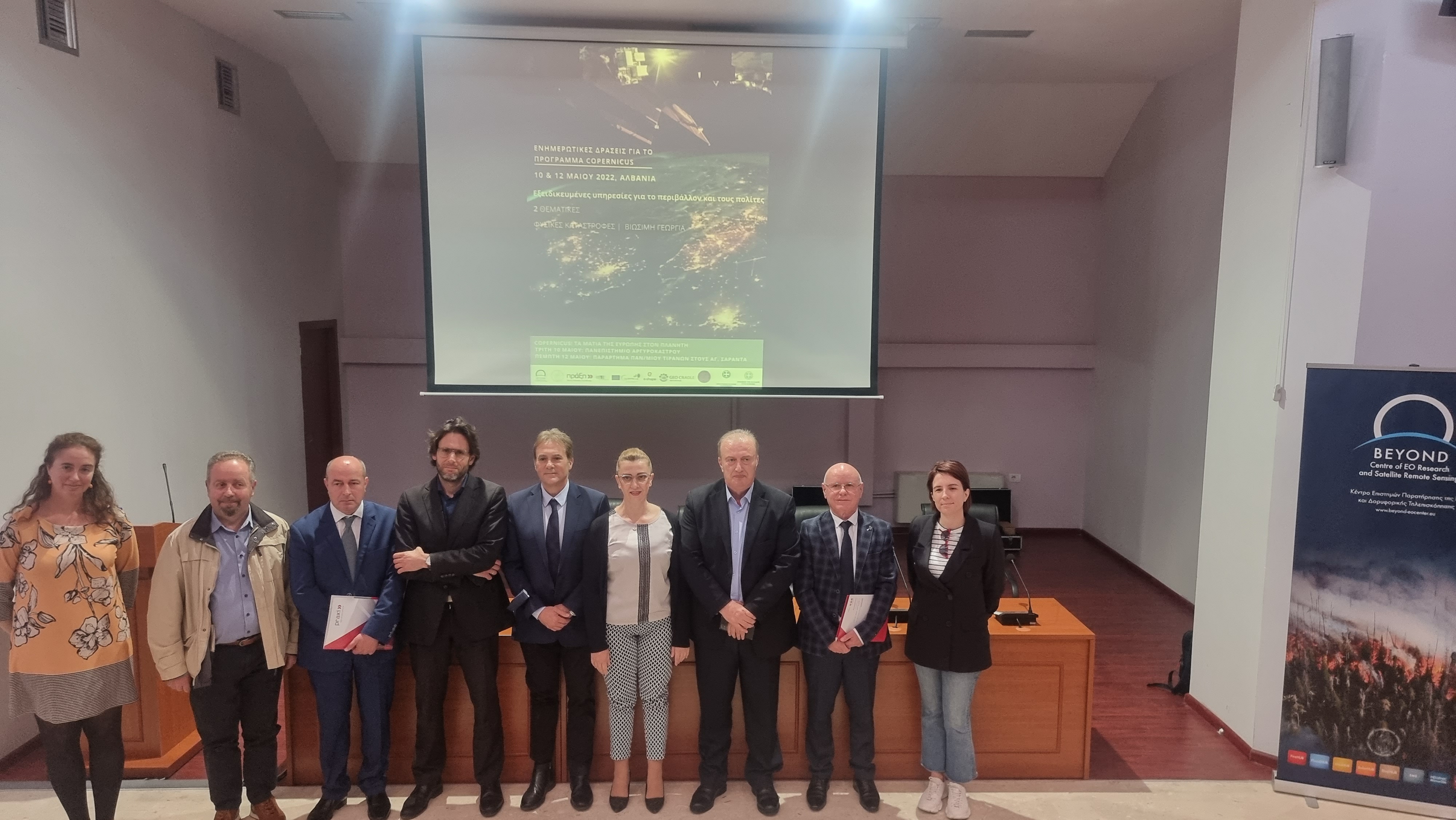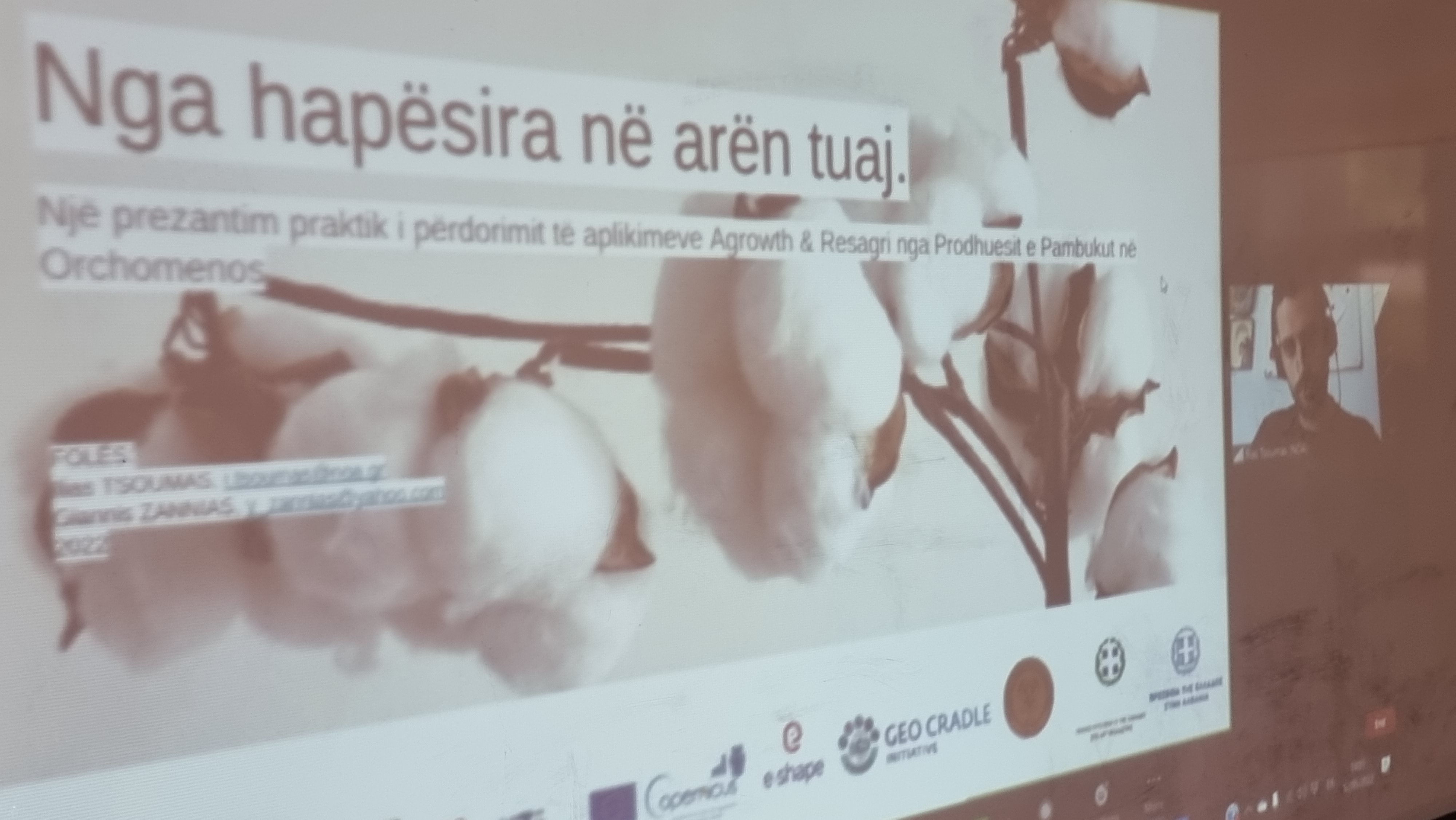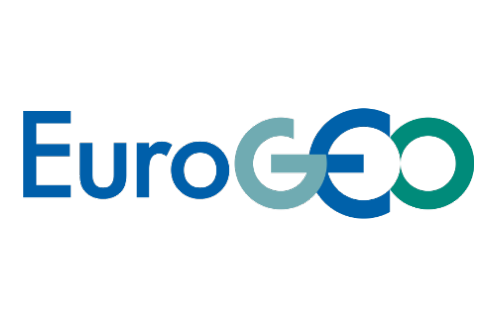News | Events
We are out there !
e-shape at Earth Observation information events in Albania
Hits: 3141
A series of informative events on Earth Observation were organized in Albania on May 09-13, 2022 by the BEYOND Center of Excellence of the National Observatory of Athens (NOA), in collaboration with PRAXI Network/FORTH and with the support of the Embassy of Greece in Tirana and the Consulate General in Gjirokaster.
The first Action was held at the Academy of Sciences in Tirana. Specifically, during the event, the e-shape project was introduced to relevant stakeholders in Albania enhancing their knowledge acquired on the domain of disasters and agriculture. The action aimed to reach all the potential Albanian recipients of Copernicus in Research, Academia and decision making bodies.
The second action was an info-day at the University of Gjirokaster that aimed to raise awareness in the Region and informed the relevant players about the Copernicus EU Programme, by demonstrating the emerging opportunities from using Copernicus to new groups of people, previously not aware of it but potentially very interested. Additionally, a special workshop on the ‘Sustainable Agriculture’ thematic was offered to interested stakeholders in the Subsidiary Sarandë - University of Tirana. In this workshop, the participants learned in practical level the value and opportunities offered by Copernicus towards public services.
Furthermore, on the 12th of May 2022 our e-shape pilot 1.2 | EU-CAP Support in collaboration with pilot 6.4 | ReSAgri - Resilient & Sustainable ecosystems including Agriculture & food from NOA, organized a dedicated online training seminar with a view to efficiently present the Agrowth and ReSAgri e-shape services.
The events were organized in the framework of the FPCUP (Caroline Herschel Framework Partnership Agreement) and the e-shape (H2020) Project and the entire action plan was published and promoted through the Albanian local media (TV) with a special mention to the e-shape project.
More info about the event here
Find the full main presentation here
Find the training presentation here





Acknowledgment
The e-shape project has received funding from the European Union’s Horizon 2020 research and innovation programme under grant agreement 820852





